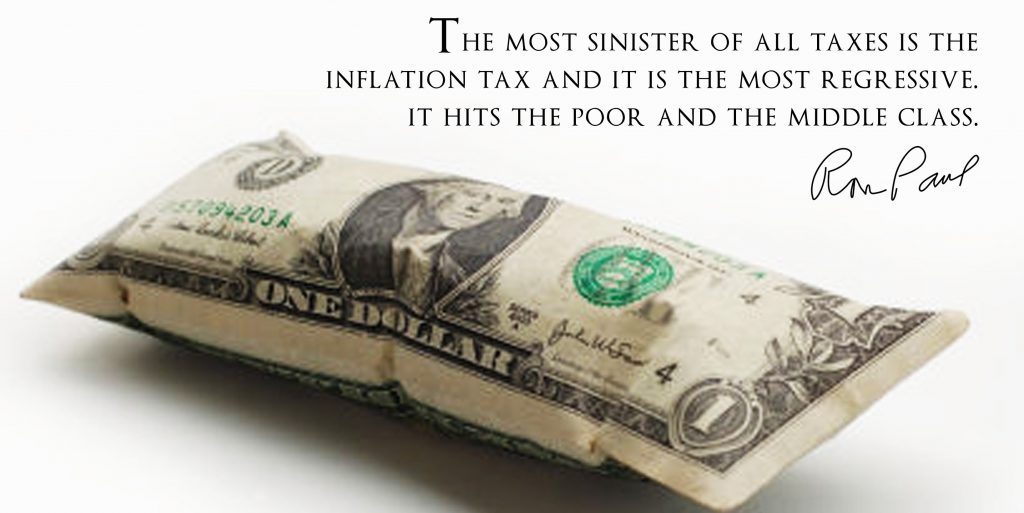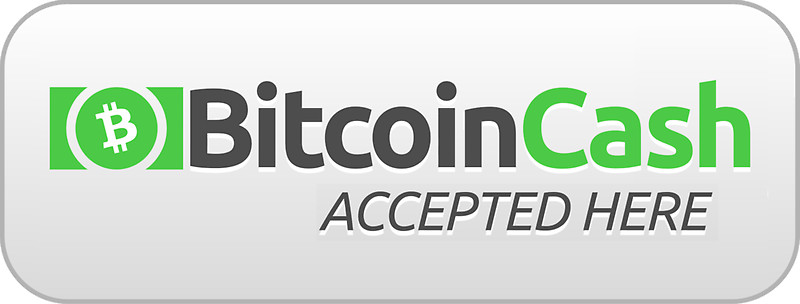
Half of nearly all transactions involve money, a medium of exchange (MOE). For almost everyone, one of those halves has always been derived, considered, instituted by governments. Also known as fiat, government money, notes, they appear to us as inevitable, right as rain, plainly self evident. However, for the first time in a long time, those notions are being challenged by cryptocurrency. At least one of the world’s most popular versions has a real chance to take the advance of cash (peer-to-peer, permissionless, final, censorship resistant MOE) and make it a global reality. Digital cash is closer than ever imagined to mimicking its government paper predecessor, without the bother of inherent violence, carrying distinct advantages previously unavailable in history.
Also read: Five Reasons Why Bitcoin Cash is About to Win Big
What Have Governments Done to Our Money?
If you’re new to thinking about money, welcome. It’s a vast, broad subject, and one that repays upon consideration and review. Chances are you’ve given the subject more thought these days due to wild cryptocurrency price speculation news. And it is thrilling. To think you’re able to invest in a digital asset at any stage, in full or fractions, and ride its swings can fill our heads with dreams of wealth accumulation. And if that’s the spark causing you to click over here, awesome. You should also begin to learn just why this bitcoin thing, this crypto thing, this brave new world is maybe even more important than typical manias or get-rich-quick schemes.
It doesn’t take long to learn a truism: government money loses value over time. Empirically, you know this. You don’t have carry a Nobel in economics to understand most products you purchased only a short time ago are more expensive. You’ve noticed, but, well, what can be done? It’s probably natural. It’s probably the way of things. Can’t be helped for some strange reason. A candy bar I paid for two years ago costs 25 cents more today. Meh, it’s not that big of a hit.

If the thought, however, begins to gnaw at you, trouble you in some fundamental way, you’re not alone. A simple extrapolation, magnifying my candy bar price increase across other goods and services, means your money, the tickets you’re working for, your primary store of value, the measurement of how you’re doing financially, is making you toil longer, harder just to keep up. Every year. Like all the time.
For better or worse (and some folks do believe it to be for the better), this phenomenon is directly attributable to governments. Since it is they, and only they, with the sole ability to prosecute money, to mint it and circulate it, print it, it is they who have ultimate control. You don’t have to be a conspiracy nutter to feel queasy about that fact. All it takes to be less than thrilled with government service of any kind is an easy jog to your local Department of Motor Vehicles. There, time itself has ceased. All notions of hustle, achievement, competence, customer service, value, etc. have utterly and completely stopped. Now imagine those same types in charge of arguably the most important technology in your life, money. Sick to your stomach yet? Money is simply too important to leave to governments.

More Than Just Speculation
You might, then, be ready for a rather giant intellectual leap: fiat is horrible. Placing politicians between you and your next purchase is a ghastly idea. It’s too much power for a small group of people to possess, and too tempting (as history shows) for them not to abuse such largess in favor of constituents and themselves.
Even somewhat seeming benevolent moves on their part are fraught with baked-in foolery. After the 2008 US housing bubble burst, The Great Recession, bailouts to “too big to fail” institutions shocked a great many average people. The self-same companies cozy with government legislators were allowed to collect private profits while handing over the perils of risk and loss to the taxpaying public. And though mainstream headlines abound about such institutions bravely “paying it all back,” government fiscal types are still hand holding the US economy through measures such as Quantitative Easing (QE), essentially pumping more money into markets. I’ve lost count of the gazillions sloshing around “one time only,” for “emergencies,” going on a decade now.

And year after year you’re being robbed, conned. Prices rise, your wealth, as much as you’ve been able to accumulate, is being chipped away at, and you’re encouraged toward really bad habits. It’s a US birthright, for example, to believe spending grows an economy. And who can blame the average bloke for thinking that? Those tickets he’s holding are dropping in value by the second, so it’s anything other than irrational not to spend, spend, spend, and quickly. The time tested method for real wealth accumulation and sound credit, saving, is all but a distant memory for most in the States. They’re too busy unloading their government bills to get ahead of certain disaster.
Presently, there is an alternative. Bitcoin cash (BCH). It’s the perfection of what government money has claimed for itself: peer-to-peer, permissionless, censorship resistant. No central body is in charge, no corporation, no government. Its inflation rate is capped at 21 million coins, causing relative value to grow over time as adoption increases. No longer are middlepersons required for your transactions. You and anyone in the world are free to trade in any manner you wish. No onboarding. No special license. No outrageous fees. Nearly instantaneous confirmations. A payment system (blockchain) wrapped in a currency, a legitimate first for humanity. Self contained. Immutable. Transparent and open source.

Savers are rewarded, as BCH owners notice their currency rise in value their relationship toward money completely changes. They’re more inclined to set some aside for future reward. That’s a profound shift. Products will have to up their game in order to entice bitcoin cash holders to part with their money. And with transaction fees negligible (which is a main principle of the community’s ethos), BCHers will certainly use it to purchase goods and services as they are doing in record numbers today.
More than just MOE or a store of value, BCH is its own network settlement layer, saving time and finally putting you and your money in your control. All that is needed is a cheap phone, not even the internet, and a determination to want a kind of financial freedom people in history could have only dreamed. Welcome. We’re glad you’re here.
Do you think bitcoin is a good answer to government inflationary money? Let us know in the comments below.
Images via Shutterstock, Pixabay.
This is an Op-ed article. The opinions expressed in this article are the author’s own. Bitcoin.com does not endorse nor support views, opinions or conclusions drawn in this post. Bitcoin.com is not responsible for or liable for any content, accuracy or quality within the Op-ed article. Readers should do their own due diligence before taking any actions related to the content. Bitcoin.com is not responsible, directly or indirectly, for any damage or loss caused or alleged to be caused by or in connection with the use of or reliance on any information in this Op-ed article.
The post Bitcoin Versus Government Money: One is Clearly Superior appeared first on Bitcoin News.
from Bitcoin News https://ift.tt/2F5zGx2
via BITCOIN NEWS
from BITCOIN NEWS https://ift.tt/2HSl6f7
via Bitcoin News Update